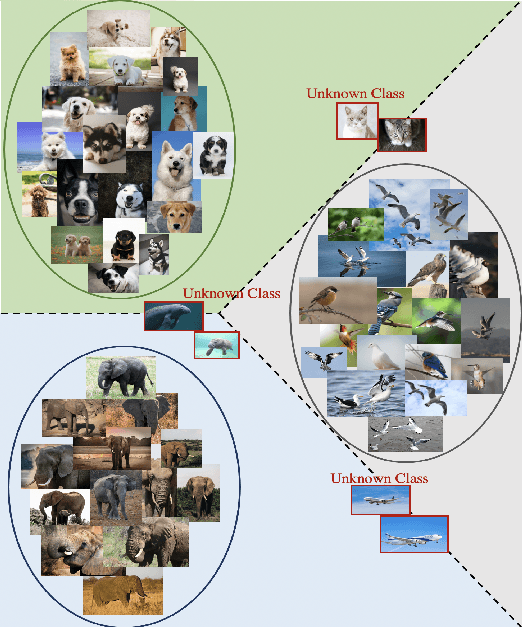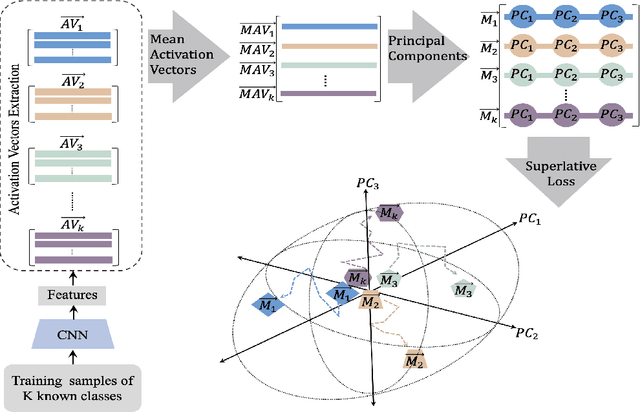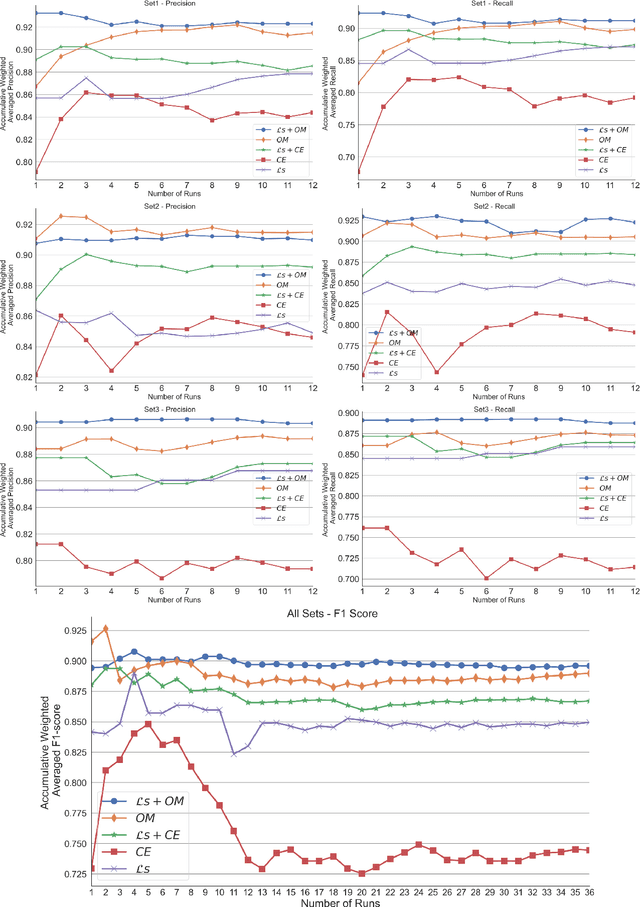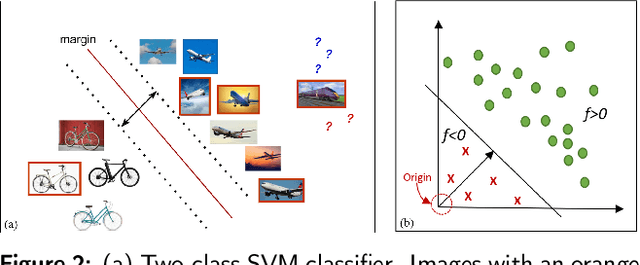Marco Carvalho
Informed Decision-Making through Advancements in Open Set Recognition and Unknown Sample Detection
May 09, 2024



Abstract:Machine learning-based techniques open up many opportunities and improvements to derive deeper and more practical insights from data that can help businesses make informed decisions. However, the majority of these techniques focus on the conventional closed-set scenario, in which the label spaces for the training and test sets are identical. Open set recognition (OSR) aims to bring classification tasks in a situation that is more like reality, which focuses on classifying the known classes as well as handling unknown classes effectively. In such an open-set problem the gathered samples in the training set cannot encompass all the classes and the system needs to identify unknown samples at test time. On the other hand, building an accurate and comprehensive model in a real dynamic environment presents a number of obstacles, because it is prohibitively expensive to train for every possible example of unknown items, and the model may fail when tested in testbeds. This study provides an algorithm exploring a new representation of feature space to improve classification in OSR tasks. The efficacy and efficiency of business processes and decision-making can be improved by integrating OSR, which offers more precise and insightful predictions of outcomes. We demonstrate the performance of the proposed method on three established datasets. The results indicate that the proposed model outperforms the baseline methods in accuracy and F1-score.
* Accepted for proceedings of the 57th Hawaii International Conference on System Sciences: 10 pages, 6 figures, 3-6 January 2024, Honolulu, United States
Proceedings of the 2nd International Workshop on Adaptive Cyber Defense
Sep 06, 2023Abstract:The 2nd International Workshop on Adaptive Cyber Defense was held at the Florida Institute of Technology, Florida. This workshop was organized to share research that explores unique applications of Artificial Intelligence (AI) and Machine Learning (ML) as foundational capabilities for the pursuit of adaptive cyber defense. The cyber domain cannot currently be reliably and effectively defended without extensive reliance on human experts. Skilled cyber defenders are in short supply and often cannot respond fast enough to cyber threats. Building on recent advances in AI and ML the Cyber defense research community has been motivated to develop new dynamic and sustainable defenses through the adoption of AI and ML techniques to cyber settings. Bridging critical gaps between AI and Cyber researchers and practitioners can accelerate efforts to create semi-autonomous cyber defenses that can learn to recognize and respond to cyber attacks or discover and mitigate weaknesses in cooperation with other cyber operation systems and human experts. Furthermore, these defenses are expected to be adaptive and able to evolve over time to thwart changes in attacker behavior, changes in the system health and readiness, and natural shifts in user behavior over time. The workshop was comprised of invited keynote talks, technical presentations and a panel discussion about how AI/ML can enable autonomous mitigation of current and future cyber attacks. Workshop submissions were peer reviewed by a panel of domain experts with a proceedings consisting of six technical articles exploring challenging problems of critical importance to national and global security. Participation in this workshop offered new opportunities to stimulate research and innovation in the emerging domain of adaptive and autonomous cyber defense.
Proceedings of the 1st International Workshop on Adaptive Cyber Defense
Aug 19, 2021Abstract:The 1st International Workshop on Adaptive Cyber Defense was held as part of the 2021 International Joint Conference on Artificial Intelligence. This workshop was organized to share research that explores unique applications of Artificial Intelligence (AI) and Machine Learning (ML) as foundational capabilities for the pursuit of adaptive cyber defense. The cyber domain cannot currently be reliably and effectively defended without extensive reliance on human experts. Skilled cyber defenders are in short supply and often cannot respond fast enough to cyber threats. Building on recent advances in AI and ML the Cyber defense research community has been motivated to develop new dynamic and sustainable defenses through the adoption of AI and ML techniques to both cyber and non-cyber settings. Bridging critical gaps between AI and Cyber researchers and practitioners can accelerate efforts to create semi-autonomous cyber defenses that can learn to recognize and respond to cyber attacks or discover and mitigate weaknesses in cooperation with other cyber operation systems and human experts. Furthermore, these defenses are expected to be adaptive and able to evolve over time to thwart changes in attacker behavior, changes in the system health and readiness, and natural shifts in user behavior over time. The Workshop (held on August 19th and 20th 2021 in Montreal-themed virtual reality) was comprised of technical presentations and a panel discussion focused on open problems and potential research solutions. Workshop submissions were peer reviewed by a panel of domain experts with a proceedings consisting of 10 technical articles exploring challenging problems of critical importance to national and global security. Participation in this workshop offered new opportunities to stimulate research and innovation in the emerging domain of adaptive and autonomous cyber defense.
A Survey on Open Set Recognition
Aug 18, 2021



Abstract:Open Set Recognition (OSR) is about dealing with unknown situations that were not learned by the models during training. In this paper, we provide a survey of existing works about OSR and distinguish their respective advantages and disadvantages to help out new researchers interested in the subject. The categorization of OSR models is provided along with an extensive summary of recent progress. Additionally, the relationships between OSR and its related tasks including multi-class classification and novelty detection are analyzed. It is concluded that OSR can appropriately deal with unknown instances in the real-world where capturing all possible classes in the training data is not practical. Lastly, applications of OSR are highlighted and some new directions for future research topics are suggested.
 Add to Chrome
Add to Chrome Add to Firefox
Add to Firefox Add to Edge
Add to Edge